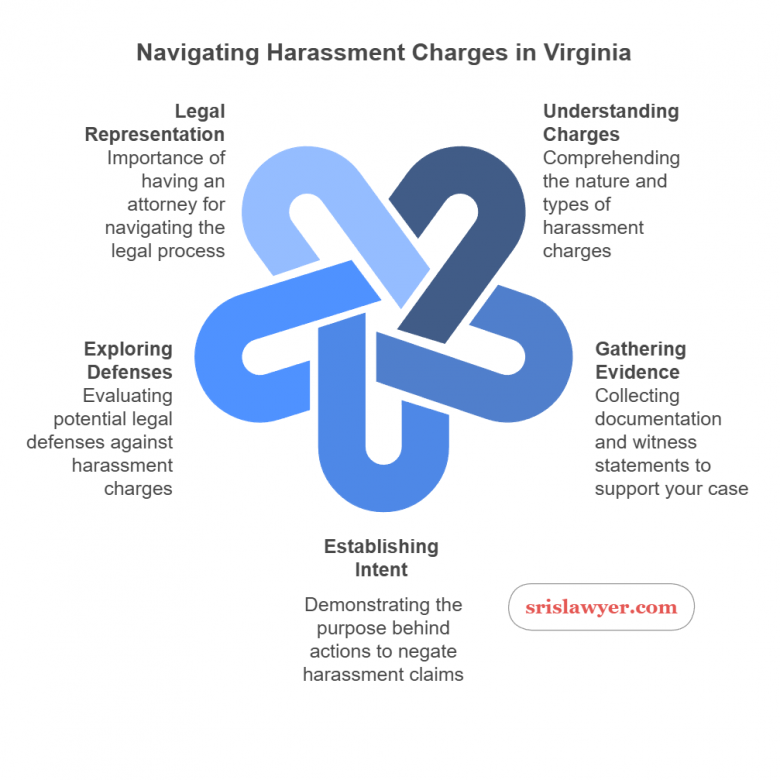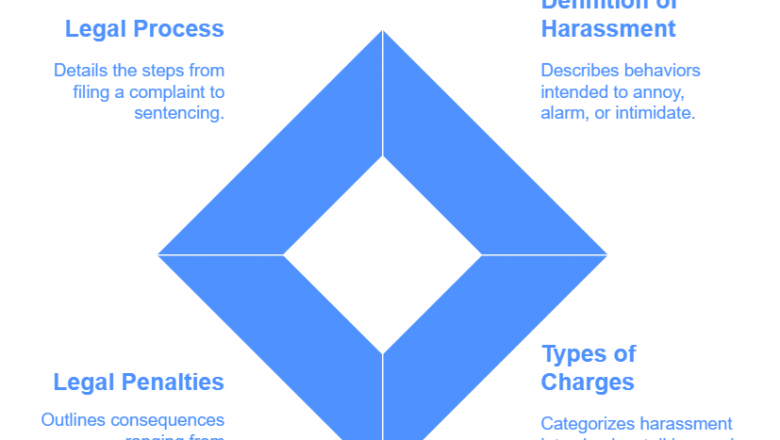views
Consequences of Breaking Virginia's Stalking Laws
Stalking is a serious offense in Virginia, with significant legal and personal consequences. As a form of harassment that can severely impact the victim’s well-being, stalking is defined under Virginia law as engaging in conduct directed at another person with the intent to place that person in fear of death, criminal injury, or sexual assault. This article explores the consequences of breaking stalking laws in Virginia, including how these offenses intersect with harassment charges in Virginia.
Legal Definition of Stalking in Virginia
Virginia Code § 18.2-60.3 outlines the legal framework for stalking. To be charged with stalking, an individual must repeatedly engage in a pattern of behavior that causes the victim to reasonably fear for their safety or that of their family or household members. The law specifies that this behavior must involve more than a single occurrence, making repeated acts the cornerstone of a stalking charge.
Examples of stalking behavior may include:
Following the victim or surveilling their activities.
Sending threatening messages or unwanted communication.
Showing up uninvited to the victim’s home, workplace, or other locations.
Using technology, such as GPS or social media, to track the victim’s movements.
Criminal Penalties for Stalking
Breaking Virginia’s stalking laws can lead to harsh penalties, which increase in severity for repeat offenders.
First Offense: A first stalking conviction is classified as a Class 1 misdemeanor. This can result in:
Up to 12 months in jail.
A fine of up to $2,500.
Second or Subsequent Offenses: If the individual has a prior stalking conviction within five years, the charge is elevated to a Class 6 felony, which carries more severe penalties:
Between one and five years in prison (or up to 12 months in jail if sentenced at the lower end).
A fine of up to $2,500.
Additionally, stalking convictions often include a protective order prohibiting contact with the victim, which can extend for up to two years. Violating this protective order constitutes a separate criminal offense with additional penalties.
Impact on Harassment Charges in Virginia
Stalking often overlaps with other forms of harassment. Harassment charges in Virginia typically involve behaviors that are intended to intimidate, annoy, or threaten another person. While harassment may not always rise to the level of stalking, it can be a precursor or a concurrent charge.
For example, sending multiple unwanted messages or making repeated phone calls may constitute harassment. However, if these actions escalate to creating a credible threat to the victim’s safety, they can result in a stalking charge. In such cases, prosecutors may pursue both stalking and harassment charges to reflect the seriousness of the conduct.
Long-Term Consequences
A stalking conviction extends beyond criminal penalties. The long-term repercussions can include:
Employment and Education: Many employers and educational institutions conduct background checks. A stalking conviction can disqualify individuals from certain opportunities and roles, particularly those involving trust or interaction with vulnerable populations.
Loss of Gun Rights: A stalking conviction may result in the loss of the right to possess firearms, especially if a protective order is in place.
Social and Personal Consequences: Stalking charges often carry a social stigma. Relationships with family, friends, and colleagues may suffer due to the nature of the offense.
Immigration Consequences: Non-citizens convicted of stalking may face deportation or denial of visa and residency applications.
Defending Against Stalking and Harassment Charges
Given the severe consequences, individuals facing stalking or harassment charges in Virginia should seek experienced legal representation. A skilled attorney can evaluate the evidence, identify weaknesses in the prosecution’s case, and develop a strong defense strategy. For instance, proving that the accused’s actions did not meet the legal definition of stalking or were misinterpreted can be key to achieving a favorable outcome.
Conclusion
Breaking Virginia’s stalking laws can have far-reaching legal and personal consequences. From hefty fines and imprisonment to damaged reputations and strained relationships, the penalties are severe. Additionally, stalking often intersects with harassment charges in Virginia, compounding the challenges for the accused. Understanding the legal framework and seeking expert legal advice is crucial for anyone involved in such cases. For victims, knowing the laws can empower them to take action and protect their safety.
harassment charges in virginia























Comments
0 comment